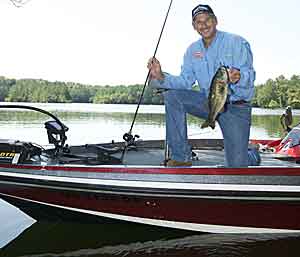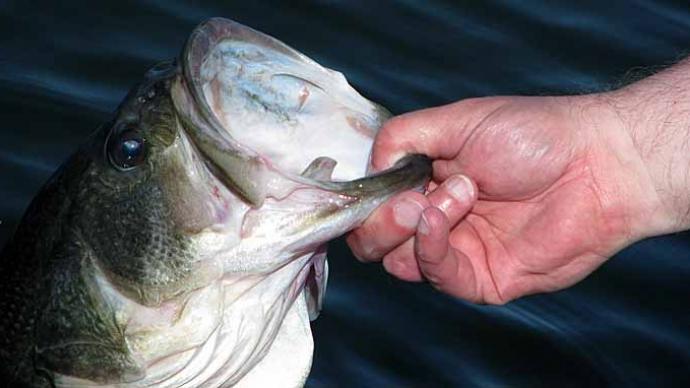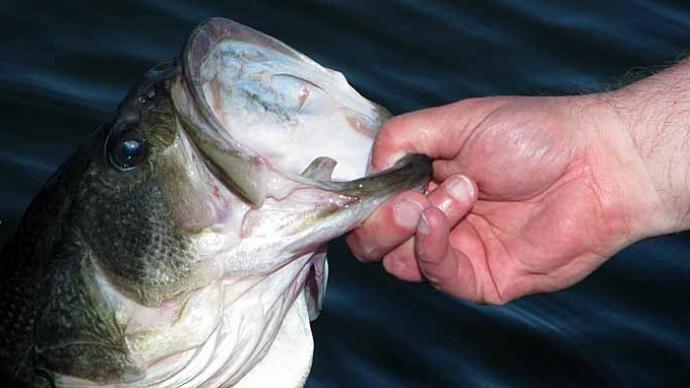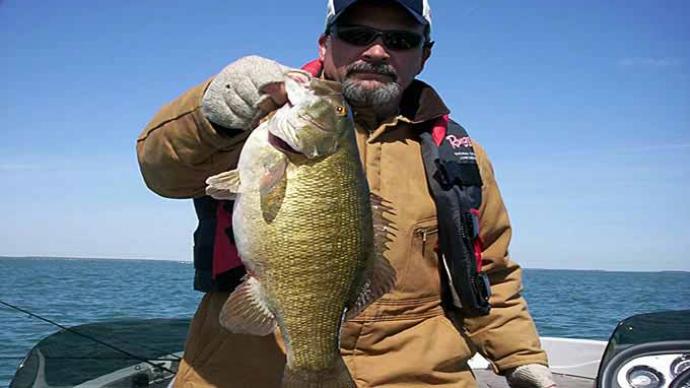
There’s nothing wrong with trying to emulate top tournament anglers. Today’s professionals can teach you a lot about bass fishing and the intricacies of tournament angling. But don’t rush to adopt those fishing strategies that don’t fit your style, level of ability or the fishing conditions.
I’m talking about your fishing pace or the speed and methodology you go through when working an area. It’s a topic that doesn’t get much discussion, yet one that is very important.
For example, Kevin VanDam fishes faster than just about anyone out there. While that works well for him and he’s obviously very efficient with his methods, it’s not for me and probably not suitable for most anglers. I am not comfortable fishing that fast.
Of my 13 major tournament wins, 11 of those came from fishing one area and picking it apart piece by piece. I’ve found that if I find an area that holds fish, I’m better off fishing it slowly than running around the lake to fish other spots that probably don’t have as many fish.
VanDam is a different breed of cat. I totally admire and respect him. He has an uncanny ability to do things most of us can’t. For that reason, it’s important that we learn to fish at our own pace because that’s how we’re going to be more efficient and catch more fish.
There are three things that should dictate how fast you fish an area. Above all, fish your comfort level because that’s going to make you more confident, observant and efficient. Your pace should be determined by your ability to fish an area effectively. Never overlook prime cover for the sake of fishing quickly. Again, VanDam can hit it all in a hurry. Most of us can’t.
On the other hand, you can fish shallow water faster and more effectively than you can deeper water. In water 8 feet or deeper, it takes longer to assess the cover and structure and make the proper presentation. It may also require multiple casts.
Water temperature is another issue because it affects the aggressive nature of the fish. Winter weather demands slower, more methodical strategies than summer, a period when bass are more likely to attack a bait and will feed more often.
Fishing slower doesn’t mean you have to inch a worm or jig along the bottom. Although I may cover more water with a spinnerbait or crankbait, I’m just as methodical. However, by moving at my own pace, I can more easily pick up the clues the fish may be offering. I’m more inclined to see a fish spook off the end of a log, swirl on my bait or chase shad against the surface.
I also analyze my casting targets more carefully. Many anglers cast prematurely and don’t present their lures around cover in the most effective manner. That leads to missed opportunities.
Remember, the first pass along a grass bed, stump row or drop-off is the most important and the most productive. If you fish at your own pace, you’re more likely to hit the key elements better and make better use of your time.
Many of today’s anglers are in a hurry. Instead of experimenting with the way they present a lure, they’re more concerned with covering a lot of water, changing lures or changing lure colors. If you’re patient and focus on lure speed and proper presentation with each cast, you’re going to be more proficient.
The philosophy that whoever makes the most casts catches the most fish isn’t true. The old saying that “practice makes perfect” isn’t necessarily true either. Perfect practice makes perfect. The angler who patiently makes the most perfect casts with the right presentation fares much better.
Fishing pace varies among anglers. Learn to refine the pace that works best for you, and I guarantee your fishing will improve.
You can find more articles, quick tips and much more at HankParker.com.




